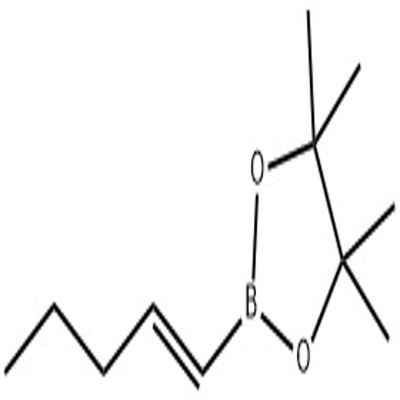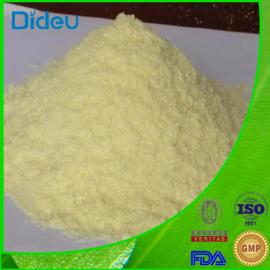-
Categories
-
Pharmaceutical Intermediates
-
Active Pharmaceutical Ingredients
-
Food Additives
- Industrial Coatings
- Agrochemicals
- Dyes and Pigments
- Surfactant
- Flavors and Fragrances
- Chemical Reagents
- Catalyst and Auxiliary
- Natural Products
- Inorganic Chemistry
-
Organic Chemistry
-
Biochemical Engineering
- Analytical Chemistry
- Cosmetic Ingredient
-
Pharmaceutical Intermediates
Promotion
ECHEMI Mall
Wholesale
Weekly Price
Exhibition
News
-
Trade Service
Source: Recently, China's CD38 antibody research field ushered in a lot of progress.
July, Johnson and Johnson's CD38 single anti-clinical application filed two new adaptive applications for listing in China; Sanofi's CD38 single-resistance was granted two clinical tacit licenses in China; and cd38 single-anti-clinical applications from Chinese company Shangjian Bio were accepted in late July.
CD38 has become one of the current hot targets.
cd38 single anti-approved treatment of multiple myeloma (MM) worldwide.
In China, only Johnson and Johnson's Daleimu single resistance this CD38 single resistance approved, but also a number of targeted CD38 antibodies into clinical trials or declared clinical stage, these products are mainly from Sanofi, Tiantian Biological, Shangjian Bio, Youzhiyou Biology and other companies.
, why is CD38 a target for the development of antibody drugs for multiple myeloma, and what is its potential for development and treatment? CD38's biological action CD38 antigen was discovered in 1980 as a type II transfilm glycoprotein with a size of 46 kDa.
of CD38 is CD31, also known as PECAM-1, which is a member of the Ig gene super family.
CD31 is expressed in lymphatic-like cells (follicle B cells and plasma cells), lungs (follicles, follicles and lymphatic tubes) and kidneys (renal cytocytocytes).
interaction between CD38 and the mating body CD31 plays an important role in regulating cell migration, subject-mediated adhesion, and signal conduction.
addition, the CD38 protein is a double-functional extracellulase that combines the activity of cyclase and hydrolytic enzyme and participates in nucleotide metabolism.
CD38 uses NAD plus as a substrate to form ring-shaped ADP rnacellulose (cADPR) and ADPR, these nucleotide metabolites are effective second messengers that regulate the mobilization of Caions in the cytokine, activate signaling path paths that control various biological processes, such as lymphocyte proliferation, pancreatic B cell secretion of insulin, and so on.
also shown that CD38-dependent adenosine production also plays a key role in immunosuppression mediated by natural killer (NK) cells.
commonly, CD38 is expressed at low levels in normal lymphocytes and myelin cells, as well as in non-hematopoietic tissue, and widely in cells of hematopoietic origin, including stereotyped stem cells.
CD38 is particularly high in plasma cells (also known as effect B cells) because CD38 is expressed in B cells.
CD38 is associated with a variety of diseases, including AIDS, autoimmune diseases such as systemic lupus erythematosus, type 2 diabetes, osteoporosis and cancer.
study found that CD38 was highly expressed in a large number of malignant blood cancers, especially in cancers such as multiple myeloma, making CD38 a target for the development of therapeutic antibody drugs for multiple myeloma.
two CD38 mono-resistances have been approved worldwide, and mono-resistance studies from Johnson and Johnson and Sanofi targeting CD38 began in 1990.
worldwide, there are now two CD38 single-resistances approved for the market, namely Daratumumab, developed by Janssen pharmaceuticals of Johnson and Johnson, and isatuximab of Sanofi, which offer new treatment options for patients with multiple myeloma.
study found that CD38 antibodies kill tumor cells primarily through Fc-dependent immune effect mechanisms, including complement-dependent cytotoxicity (CDC), antibody-dependent cell-mediated cytotoxicity (ADCC), antibody-dependent cell phagocytosis (ADCP), and apoptosis.
addition, CD38 antibodies can improve host anti-tumor immunity by eliminating inhibitory cells from regulatory T cells, regulatory B cells, and myelin-like sources.
CD38 Single Anti-Treatment of Multiple Myeloma's Mechanism of Action (Photo Source: Resources) Jansen Pharmaceuticals' Daleimu Monoantigen was first approved by the FDA in November 2015 to treat patients with multiple myeloma, the world's first approved all-human monoclonal antibody to target CD38.
According to an earlier press release issued by Janssen Pharmaceuticals, Daleimu monoantigen specifically identifies CD38, which is highly expressed on malignant plasma cells of multiple myeloma, in a high affinity manner, which in turn induces the death of tumor cells through a variety of immunomediation mechanisms.
has been approved by the FDA several times since its inception in 2015 to expand the scope of treatment for patients with multiple myeloma.
isatuximab is a monoclonal antibody that targets CD38 receptors on the surface of plasma cells and triggers a number of different mechanisms of action that promote apoptosis and regulate immune responses.
the drug was approved by the U.S. FDA in March 2020 to treat adult multiple myeloma patients in association with pomadamine and dexamisong.
addition, Sanofi has initiated a number of clinical trials to assess the efficacy of isatuximab in combination with different types of standard therapies to treat patients with multiple myeloma at different stages of the disease.
, Tiantian Bio, Shang Jian Bio and other Chinese companies are also developing at present, China only Johnson and Johnson's Daleito yu single resistance CD38 single resistance approved for listing.
public information shows that there are already several CD38 monoantigens in China into or about to enter the clinical trial stage, from Sanofi, Tiantian Biological, Shangjian Bio and other companies.
the following antho-section of cd38 antibody research being developed in China.
1, Johnson and Johnson: Daleitoyu monoantitor Dareto single resistance was first approved for listing in China in July 2019 for single-drug treatment of relapsed and refractic multiple myeloma adult patients, including patients who have previously received a protease inhibitor and an immunomodulant and the last treatment of disease progression, this is the first cd38 monoantitor approved for market in China.
July 2020, Johnson and Johnson submitted two new applications for the Daretoyu single anti-injection in China, meaning the drug is expected to expand new allergies in China to benefit more patients.
2, Sanofi: isatuximab Sanofi isatuximab has entered phase 3 clinical research in China.
China Drug Clinical Trial Registration and Information Disclosure Platform shows that isatuximab is conducting two clinical trials in China, one of which is a randomized, open international multi-center Phase 3 clinical trial designed to assess the benefits of isatuximab combined boronazome, lanadoamine, and dexamisong, compared to boronazome, lynaxamide and dexamysund, in extending the new diagnosis of multiple myeloma and not suitable for transplantation in patients with no progression survival (PFS).
July this year, isatuximab obtained two more clinical trials in China, with the condition "combined with amines and dexamisong for the treatment of high-risk smoke-type multiple myeloma (SMM) patients."
3, Tiantian Bio: TJ202TJ202 is a CD38 single resistance developed by MorphoSys, Germany, and in 2017 Tianbi obtained exclusive authorization for the development and commercialization of the drug in Greater China, including Chinese mainland, Hong Kong, Macau and Taiwan.
TJ202 is intended to be developed for the treatment of multiple myeloma and autoimmune diseases, according to the Tiantian Biological Website.
currently, Tiantian Bio has initiated two registered clinical trials in Greater China for the treatment of multiple myeloma patients with TJ202: one for the International Multi-Center Phase 3 Clinic, which is designed to evaluate TJ202's combined amines and dexamisons The efficacy and safety of the treatment of multiple myeloma, and the other is an international multi-center Phase 2 clinic designed to assess the safety and effectiveness of treatment with TJ202 combined with cymxon in subjects with multiple myeloma who have received at least 2 lines of treatment.
4, Shang jian biological: SG301SG301 is Shangjian biological independent research and development of anti-CD38 humanized monoclonal antibodies, belonging to therapeutic biological products 1 category.
, SG301 identifies new antigen tables and plays a unique role, according to Shangjian Biosynical Press Release.
July 24, SG301's Application for Clinical Trials of New Drugs (IND) was officially accepted by CDE.
the first CD38 single-anti-application clinical application developed by a Chinese company, according to a press release from Shangjian Bio.
5, Youzhiyou Bio: Y150Y150 is an injection recombinant anti-CD38 and CD3 humanized dual-specific antibody product developed using youzhiyou bio's YBODY® platform technology, which targets CD38 antigens with high expression of tumor cells at one end and CD3 antigens on the surface of immune T cells at the other end.
Y150 recruits T cells to tumor cells by targeting CD38 antigens and CD3 antigens, and activates T cells to immune killer tumor cells, thereby inhibiting tumor cell growth.
CDE website, you have submitted a clinical trial application for the product in China, which was accepted on July 28.
6: Kessin Yuanda Pharmaceuticals: CID-103CID-103 is a new anti-CD38 monoclonal antibody originally developed by Black Belt Therapeutics, which acquired a global exclusive interest in the drug in April 2019.
ciD-103 can kill CD38 plus cells by activating effect T-cells and NK cells, according to an earlier press release issued by Kessing Yuanda Pharmaceuticals.
preclinical studies have shown that CID-103 can induce strong antibody-dependent cytotoxic reactions (ADCC), antibody-dependent in-cell swallowing (ADCP), and complement-dependent cytotoxic (CDC) effects.
small knot multiple myeloma is the second most common malignant tumor of the blood system, with more than 130,000 newly diagnosed multiple myeloma cases worldwide each year.
despite the available treatments, multiple myeloma remains an incurable malignant tumor that most patients relapse after treatment or remission.
the arrival of CD38 monoantia, providing new options for patients with multiple myeloma, especially those with relapses and incurables.
more breakthroughs in CD38 antibody research for the benefit of more patients.
follow the public number of WeChat on Medicine Mingkangde.







